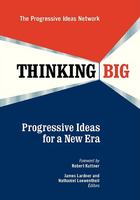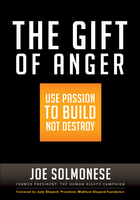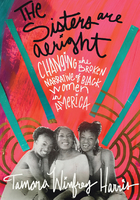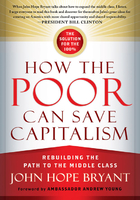5.ARE: Anchor, Reveal, Encourage
THE CURE FOR “BUT I NEVER KNOW WHAT TO SAY!”
So there's a fellow standing next to me with available eyes and an open posture. Perhaps we've already smiled at each other, said hello, shaken hands, and introduced ourselves. Now we begin the kind of small talk you dread: from a cold start with a Them (as far as you know), with the goal of turning this stranger into an acquaintance. Here is where most people panic because they are unprepared to perform this act of human alchemy.
Luckily, there's an easy enough formula to walk you through this process: Anchor, Reveal, Encourage.
1.Anchor the conversation with a neutral topic from your shared reality.
2.Reveal something about yourself regarding that topic.
3.Encourage the other person to talk by asking them a question about that topic.
Designing ARE patterns is something you can do in advance (before you leave the house) so you don't have to be creative when you're the most uncomfortable. Take some time to review some possibilities: the occasion or aegis, the music, food, decorations, or the weather. Imagine in your own mind how you can build your opener:
(A) This seems to be a very large graduating class.
(R) I've been looking for my nephew, but I'm getting discouraged.
(E) Do you have a family member in there somewhere?
What you're actually saying in code is, “Hello! You seem like a nice person. I hope you'll like me. How about we talk for a while?” Would you feel more comfortable saying that? Your goal in small talk is to connect with another human being, to become known to them and they to you. The ARE sequence helps you use whatever you can in the present circumstance as your bridge to Us.
ANCHOR THE CONVERSATION
I am sometimes asked about having a good opening (i.e., anchoring) line.
Haven't we met somewhere before?
What's your sign?
Do you come here often?
A magic anchor, if such a thing existed, may help your insecurity, but canned openings are pretty obvious and irritating unless you're an exceptionally funny and clever person.
Before you leave the house, arm yourself with some probable topics to start chatting about at your event so you don't have to search for one on the spot. This will greatly increase your comfort. The easiest and safest place to start a conversation is with the aegis that brings you both together—the organization or theme that occasions the get-together, the host of the party, the chamber of commerce, the company-sponsored trip to a baseball game, Burning Man, an Easter Egg hunt, or a fashion show. Certainly, a comment on some aspect of the overarching occasion is appropriate for notice and comment, though I always recommend avoiding the negative, like “Whoever planned this event was really a pea brain.”
A comment on the weather is always safe.
Hot enough for ya?
Isn't this a lovely day?
Will this rain never stop?
If you cringe when you hear these conversational anchors, it means you don't appreciate their friendly intent. They are conversational code for “Is it safe to talk with you? Will you reject me? Can we be friends?” If you are easily bored with these innocent exchanges and yearn to be more meaningful, I would also point out that you are assuming the other person is ready to join you on a more intense, substantive topic. This is not a wise assumption. In the initial phase of small talk, both parties are still deciding if they even want to talk with each other in the first place.
Now, maybe you're thinking, “What a rude jerk I have been! I've been sneering at all these well-meaning people because they did not approach me with an opening comment at the same level of my lofty intelligence!” Or something to that effect. Many of us need to dismount from our very high horses and learn to respond to the intent of friendly people who engage us in neutral, seemingly bland topics.
It pretty much doesn't matter what you are talking about; it's the fact that you've opened your mouth to engage someone else in what you hope will be a pleasant exchange. Don't take it too seriously. Simply look around and say something relatively pleasant or fun about anything that seems to be a shared experience for both of you. If you can comment on something that is beautiful or well done, certainly do so. You'll be setting the tone for pleasantry and comfort. With practice, you'll get better at picking anchoring topics that lend themselves to deeper conversational development. Or you can just stick to the weather.
REVEALING YOURSELF
Speaking of our friend The Weather, it is actually the safest topic in the world to start a conversation: it is neutral, obvious, and part of everyone's shared reality. It affords a safe way to engage another person with no real personal intrusion.
The English are masters of the weather conversation. In Watching the English: The Hidden Rules of English Behavior, author Kate Fox summed it up this way: “The whole point of the weather discussion is to communicate, to agree, to have something in common; and shared moaning is just as effective in promoting sociable interaction and social bonding as shared optimism, shared speculation or shared stoicism.
“When we discuss the weather, we are invoking the one thing that we know we have in common with others. We are throwing a rope across the divide, asserting that, whatever our differences, we do share something. When it rains on me, it's going to rain on you too.
“The other person can expand on the topic to make it more personal and interesting. Or they can simply brush it off with the briefest of acknowledgements, thus avoiding engagement if they so choose.”
MILO: Nice weather you folks are having.
NEAL: Yes, it is. The place to be today would be walking on the Embarcadero with my puppy. There'll probably be a lot of people out to enjoy the Bay view. Have you been down to the Embarcadero?
Do you see how Neal responded with free information? He revealed his thoughts related to the weather topic voluntarily, giving Milo the encouragement to continue the conversation, as well as new possible topics to explore. Milo's next statement could be “Where is the Embarcadero?” or “What kind of dog do you have?” or “Can you see the Golden Gate Bridge from there?”
This one thing, the revealing of information, is crucial to conversation development. I cannot stress enough the value of your providing additional information to allow a conversation to take a different direction. As the conversation progresses in this way or that, certainly you will discover a topic that you both really want to talk about.
We develop conversation by going beyond the simple anchoring opening and offering some information about ourselves before asking the other person to talk. In doing this you foster trust. It's also the kind thing to do, helping the other person get the conversation rolling by not playing hard to get. This is that attitude part that I hinted at previously, the attitude that covered your own uncomfortable feeling. You will soon meet Leo by way of illustration (Chapter 6).
However, you are always in control of how intimate you want to be and how fast you reveal details about yourself. If you want to keep everything out on the front porch, so to speak, you can keep all your references public. For example, a woman might comment, “What a lovely day. This should bring lots of people out to the opening of the arts center.” This kind of observation is not at all personal for either of you. But she could also say, “What a lovely day! And with that breeze, it's perfect weather to take my sailboat out on the bay.” Here she's revealed some interest in sailing and that she's in possession of a boat. This free information gives you the choice to get off of the weather topic and, possibly, on to the more personal one about sailing.
How many conversations have you murdered in their cribs by your lack of contribution of imagination and energy? Yes, you! Regardless of the number, I'm going to forgive you, because I'll bet you didn't know anything about revealing free information.
FROM CHAT TO CONVERSATION
Here are three stories touting the value of free information. Carl never got the hang of it, Laura overflowed with it, and Marion had to be held down for extraction. Read on and tell me who you most identify with.
Carl
Carl was a self-effacing young man in the pharmaceutical industry whose career plans required that he leave the back room—his comfort zone—and represent his company in the business community. He knew this was an important promotion and he simply had to deal with the social demand, hence he began working with me. Carl needed to find people he could talk with to practice what he was learning in my office, but he was at a loss. Carl was a loner with a “don't bother me” posture. He avoided eye contact with other people. So where to start? He had to find a new someone to talk to. What he found was a someone willing to talk to him behind the dumpster of his apartment building.
A particularly gregarious homeless man greeted Carl one morning as he left the building. Carl walked on but immediately realized that someone had made a friendly overture to him. This was his big chance; part of his homework was to respond to all outreach to him. He turned back and returned the greeting. They managed to fashion an initial conversation and exchanged names. The next day was especially meaningful for Carl. As he left his apartment building, he heard a cheery “Hi, Carl!” from his friend behind the dumpster. Someone had called out his name. Carl felt a jolt of joy that surprised him. Someone had recognized him as an individual. Somebody had said, “There you are!” Carl could feel how hungry he was for validation and recognition, and that he had finally found the right path.
However, this association went no deeper. My guess was that both men experienced the social class barrier that prevented them from seeking other deeper mutual interests. They remained on the neutral small talk “chat” level—sometimes a ballgame, the weather, or traffic served as topic—for the duration of their acquaintance.
Carl and his dumpster friend had to be satisfied with occasional chat for the sake of sociability. It is completely possible, even probable, that they shared some other features of life that would have enriched their relationship. But no mention was made, so no connection was made.
Since Carl took a ride-share service to get to my office, I decided to use the resources available to him to try a different direction. I asked Carl to get in the front seat of the car and start a conversation with the driver. This was clearly not the habit of Carl, but this is how new habits get started. I asked him to tell me as much as he could about his driver during our appointment. The first driver was from Nepal. I asked, “Well, now, does he have a name? When and why did he come here? How did he get here? What surprised him? What does he miss from Nepal?”
Carl got the name and the make of the car and the Nepal part right. He had discovered that the driver liked driving with Lyft and that the traffic wasn't bad that day, but that was about it. I assured him he'd do better next time. Get curious about this person, I encouraged. Try to imagine his journey. Get out of your corner and mix it up with this guy. Pretend that you're going to have to introduce him as a speaker.
Come the next week and Carl's driver was from Yemen. “How in the world did you manage to get here?” Carl had asked. So he did better this second time, and even better with the following driver from Sudan. You can imagine poor Carl trying to penetrate Sudanese culture for a conversation. In the next stage of our work, Carl had to volunteer some information about himself to become an equal partner in the chat.
“So, what does Achmed know about you?” I asked him. “Could you say, ‘Morocco! Wow. That's a long way away. I've never been there. Of course, I've never traveled abroad, if you don't count Canada.'” That was just a tiny bit Carl could have revealed about himself and it would have been a start. Achmed was followed by a driver named Eddie from Guam and then a Punjabi named Amar. Carl had never realized that he had access to the world in his rides and that he could plumb as much depth as he was interested in. That was the point, of course: to develop curiosity and an appreciation of other people. And these nice Lyft drivers were captive subjects of my speech client. Thank you, Lyft.
Laura
In this story, I was a speaker at a medical conference with my friend Janet, a physician in San Francisco. We were having dinner in a small restaurant when I saw Laura, a retired psychiatrist from the east coast whom I had just met during the conference. I invited her to our table and introduced her to Janet, and they proceeded with conversational exchange quite easily. Why? Because we were an Us. They were both female physicians attending the conference and they both knew me, so I could make a proper introduction. We all clearly belonged to the same tribe.
The topic of my probable knee surgery was mentioned, and Laura was reminded of a wonderful orthopedic surgeon she had gone to medical school with some thirty-five years ago, Lee Hong. As a matter of fact, they had been sweethearts. She hadn't seen him in many years and didn't know where he had gone. Then Janet piped in, “I'll tell you where! His office is two doors down from my nephrology clinic in San Francisco!”
Bingo! Then they really went to town on Lee Hong.
This story showcases the deliciousness of casual, aimless chat and how it can turn into a genuine conversation through the revealing of specific free and personal information.
One more story.
Carolyn
I was part of a team teaching a business development course at the University of California at Berkeley. Other than being brought together to teach this course, we were pretty much strangers who shared a car to Berkeley from San Francisco once a week. On one such trip, Carolyn, the woman who taught the accounting component, mentioned that she would not be with us the following week; she was going to visit her family.
ME: Where are they?
CAROLYN: Up north.
ME: Where up north?
CAROLYN: In Washington.
ME: Where in Washington?
CAROLYN: On the west coast.
ME: Where on the west coast?
CAROLYN: On an island in Puget Sound.
ME: Which island?
CAROLYN: Vashon Island.
ME: I went to grade school on Vashon Island.
CAROLYN: So did I! I was at Burton School.
ME: Me too!
We turned out to be first and second grade classmates. How cool is that? But the specific personal information that was so exciting did not come out freely, did it? Look how I had to chisel it out!
Images
I'm hoping that you will not to have to dumpster dive for your social life. But wherever you find your new friends, know that you have the key for getting from chat to conversation: offer free, specific information. If you remember just one thing from your reading, let it be this. Always use specific proper nouns when you can—say “Washington,” not “up north.” Whatever reasons you offer as to why you don't do this do not impress me. Get me names and dates and I'll be interested. Try it out.
ENCOURAGE WITH QUESTIONS
On a trip to England in the mid-1980s, a friend and I had the privilege of spending a day on a cattle farm in Surrey with a retired World War II officer and his wife. He met us at the train, and we spent the morning touring his land and facilities. Thereafter, my friend and I sat in his Victorian parlor for a cup of tea with the wife. We beamed brightly at each other as an uncertain silence established itself. Then with the courage expected in a wife of a former British Gurkhas officer, our hostess remarked, “We haven't seen many Yanks down here for quite a while.” After a long pause, she continued with a smile, “That Hitler was a bad sort, wasn't he?”
We had to agree with her, although I can't say the conversation went very far. I'll give her my Most Valiant Effort at Small Talk Award, but really we could have used some more encouraging questions on her part.
You can encourage the other person to talk with a question on the same topic you chose as your anchor and reveal. Just avoid yes or no questions. Even though simple yes or no questions can help open areas of conversation, the problem is that that the conversational partner may actually respond with just a yes or no. Then you're left having to come up with another question.
Many young people and some foreign-born citizens may not be forthcoming because they don't latch on to the intent of the question (i.e., to open a conversation). Instead, they respond as if the content of that particular question is all that matters (like my teaching colleague Carolyn in the story in the previous section). This is not fun. The better approach is the use of the open-ended question and the provocative question. Open-ended questions give the subject plenty of room to respond as he or she would like:
What did you think of the speaker?
How was the parking when you arrived?
When do people generally go skiing around here?
Where are the best women's boutiques in the city?
What kind of bait are you using?
Why did the jazz club fail?
What, why, where, and how questions are the tools of journalists—and of you too if you want to encourage a more complete response from a person. You'll probably end up with more free information for further conversation building.
JENNY: What did you think of the clown act with the balloon animals?
LUKE: To tell you the truth, my five-year-old was given a balloon kit for her birthday and she can make most of the animals that he did!
Now you have smart five-year-olds and maybe balloons as potential topics. Can you do anything with that?
JENNY: A balloon kit! I would have never have thought of that for little kids. I've got a four-year-old niece in Seattle who is super smart. I bet she'd love that. Where do you go to buy the right balloons for this?
Take a cue from Jenny. One of the most ingratiating responses you can make is a follow-up question because it demonstrates that you are interested enough to pursue the topic. This is one of those interview techniques that encourages the speaker and helps add dimension to the topic.
MAKING YOUR PASSION VISIBLE
Please indulge me. I want to tell you a story that begins with the repair of my red velvet slippers and ends with me listening to Dietrich Fischer-Dieskau late one night.
I went to pick up my shoes from the small shop in my neighborhood where you can get your shoes—or your vacuum cleaner—repaired. I would describe the shop as utilitarian, a place of serious repair. When the repair man disappeared to retrieve my slippers I noticed high on the wall a series of four fading posters all relating to Verdi opera performances.
When the man returned with my slippers, he said, “So, you are an opera lover!”
I then realized I had been humming “Celeste Aida” to myself (as one does).
ME: Looks like you're one yourself!
HIM: Yeah, I like it. I do. But what I really love is lieder, German lieder.
ME: Really? I went to a John Shirley-Quirk lieder concert and got to sit on the floor right in front of him—a sold-out concert in a small hall. He's wonderful, as I'm sure you know, but my most vivid memory was watching a stream of sweat coming down that man's face and ending in a drop on his eyelash that just stayed there. He's holding out this delicious pianissimo and the man does not blink! So disciplined!
HIM: Then you've got to have heard Fischer-Dieskau! He's “The Man” for lieder. Of course, Schubert is the necessary element here. Nobody sings Schubert like Dietrich Fischer-Dieskau! There is . . . I don't know what . . . just something in his voice that is so, so . . . I don't know what. It is wonderful.
ME: I'll want to hear that! But I did hear Marian Anderson sing “The Erl-King” when I was thirteen years old. I'm by myself, sitting in the front row, just because I got to the theater before anybody else. Long story short, she sang the child's part from the stage directly into my front-row face. It didn't take much of that before I started to sob—Anderson's storytelling!—and humiliate myself. I just didn't understand what was happening to me.
HIM: I know what you mean. I know what you mean!
This was our small talk, people! I know this is the kind of conversation that you want to have: genuine, mutual, and stimulating.
The repairman then reached across the counter, taking my hand and introducing himself, “I am Chang.” “I am Carol,” I responded. We are now friends. And that's why I listened to Dietrich Fischer-Dieskau on YouTube late that night—so I could hear what Chang had heard.
Now, suppose I had met him at the neighborhood block party, and suppose I had asked him, “What do you do?” He would have said, “I repair shoes and vacuum cleaners.” We had been spared the tedious search for a topic because he had revealed his passion up on the wall and I had responded in a way that encouraged him to expound on it.
Pay attention to how this serendipitous conversation occurred. Chang had his passion on display-free information—above the vacuum cleaners and shoes. The moral of the story: Be thinking about what you'd love to talk about and how you could make that more easily apparent to a conversational partner.
WHAT DO YOU DO?
The “What do you do?” question gets the prize for the most-often-used open-ended question to start a conversation, at least around these parts. In many circles, work is considered the only salient feature of another person. But there are quite a few people who consider the “What do you do?” question inappropriate, boring, rude, predictable, and intrusive.
Think twice before you poke this far into somebody's business. They may not want to be defined by their work. (This topic is especially disdained in Europe.) Here are some alternate questions for learning about people.
What do you like to do on weekends?
What do you recommend visitors do here?
Where would you take children for a great Saturday outing?
What kind of experience have you had with the local service clubs?
But let's say occupations do make their way into the conversation. Your partner just may have an interesting occupation that lends itself to conversation. Leil Lowndes' book How to Talk to Anybody About Anything gives you some excellent questions for unusual occupations that will ensure a thoughtful and informed exchange. But what if they say something that's not so readily engaging? Now it's your job to see if you can make them interesting by asking a thoughtful or provocative question.
What would be a provocative question for a shoe salesman? Probably not “How long have you sold shoes?” or “How did you get started in the shoe business?” While these aren't bad questions, they're just not especially interesting ones.
A good question is one that causes a person to think,
to make a judgment.
You will make that person feel interesting, and that feels very nice indeed. Here are some possibilities:
Do you think men or women are harder to please?
What kinds of customers drive you nuts?
Where are most shoes made these days?
How do foreign-made shoes compare to American shoes in quality and price?
What can you tell me about the fashion trends for the next year?
What's the hottest sneaker for men?
Writer and tech entrepreneur Paul Ford suggested a particularly stimulating response to the “occupational reveal” in his Medium piece “How to Be Polite.” In conversations with new acquaintances, Ford tries not to ask what they do for a living, but if it comes to that, he responds to their job description—whatever it is—with, “Wow. That sounds hard.”
Think about it. Doesn't everybody think that their job is hard? And can you think of a better way to extend empathy?
Images
Getting the Anchor, Reveal, Encourage sequence to come easy takes repeated practice. Practice means putting these sentences into your mouth and actually saying the words. The repetition will put them into your motor memory until they become automatic. I know this may feel a bit stupid to you, but we're dealing with sausage making here.
Practice it around the house. Don't quit when you are still fumbling awkwardly. Pick from an example in the book if you need to. Just keep changing a few words and try again.
(Anchor) Great day, huh?
(Reveal) I see they've put up some tents on the lawn out there; maybe they think some rain's coming.
(Encourage) What do you think?
This is all you need to do for starters. Practice will really pay off for you when you get out into the real world. You'll be glad you rehearsed.















